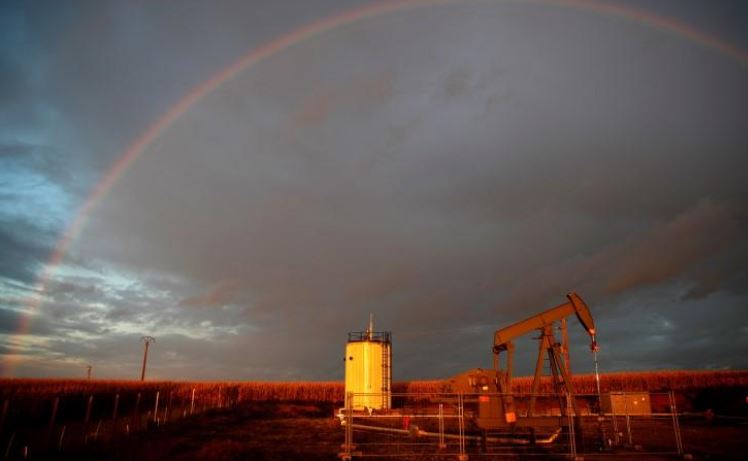Oil prices hit their highest levels since July 2015 early on Monday as markets tightened, while Saudi Arabia’s crown prince cemented his power over the weekend through an anti-corruption crackdown that included high profile arrests.
Brent futures LCOc1, the international benchmark for oil prices, hit $62.44 per barrel early on Monday, their highest level since July 2015, and after a dip regained that level by 0625 GMT. This is over 40 percent above June’s 2017 lows.
U.S. West Texas Intermediate (WTI) crude CLc1 hit $56 per barrel in early trading, also the highest since July 2015, and was at $55.86 at 0625. WTI is one-third higher than its 2017 lows.
Crown Prince Mohammed bin Salman, also known as MBS, has tightened his grip on power through an anti-corruption purge by arresting royals, ministers and investors including prominent business billionaire Alwaleed bin Talal and the head of the National Guard, Prince Miteb bin Abdullah.
RBC Capital Markets said in a note that although the “purge represents a stunning political development in Saudi Arabia,” it expected “no immediate changes” in the oil policy of Saudi Arabia, which is the world’s biggest exporter of crude oil.
“MBS seems strongly committed to anchoring the OPEC agreement deep into 2018 and moving ahead with the Aramco sale,” RBC said.
Bin Salman’s reforms include a plan to list parts of giant state-owned oil company Saudi Aramco next year, and a higher oil prices is seen as beneficial for the market capitalization of the future listed company.
In oil fundamentals, traders said that there were ongoing signs of tightening market conditions.
U.S. energy companies cut eight oil rigs last week, to 729, in the biggest reduction since May 2016.
The decline in U.S. drilling activity comes as the Organization of the Petroleum Exporting Countries (OPEC) and a non-OPEC group lead by Russia have pledged to hold back about 1.8 million barrels per day (bpd) in oil production to tighten markets.
The pact to withhold supplies runs to March 2018, but there is growing consensus to extend the deal.
While supplies are tightening, analysts say demand remains strong.
“Synchronous global economic growth and new supply disruptions are creating the most constructive oil price environment since … 2014,” Barclays bank said.
The British bank said it was raising its average Q4 Brent price forecast by $6 per barrel to $60 per barrel.
”The surprisingly strong macro backdrop and the accelerated inventory drawdown mean that these slightly higher price levels are likely to be sustained through Q1 of next year.
Barclays said it raised its full-year 2018 forecast by $3 per barrel to $55 per barrel.





government should used this means to save.
government should used this means to save.